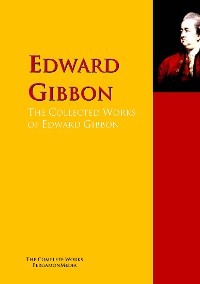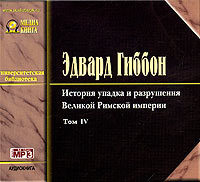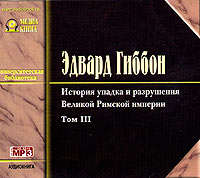
Полная версия
Memoirs of My Life and Writings
Such are the hopes of authors! In the failure of those hopes John Gibbon has not been the first of his profession, and very possibly may not be the last of his name. His brother Matthew Gibbon, the draper, had one daughter and two sons—my grandfather Edward, who was born in the year 1666, and Thomas, afterwards Dean of Carlisle. According to the mercantile creed, that the best book is a profitable ledger, the writings of John the herald would be much less precious than those of his nephew Edward: but an author professes at least to write for the public benefit; and the slow balance of trade can be pleasing to those persons only, to whom it is advantageous. The successful industry of my grandfather raised him above the level of his immediate ancestors; he appears to have launched into various and extensive dealings: even his opinions were subordinate to his interest; and I find him in Flanders clothing King William's troops, while he would have contracted with more pleasure, though not perhaps at a cheaper rate, for the service of King James. During his residence abroad, his concerns at home were managed by his mother Hester, an active and notable woman. Her second husband was a widower of the name of Acton: they united the children of their first nuptials. After his marriage with the daughter of Richard Acton, goldsmith in Leadenhall-street, he gave his own sister to Sir Whitmore Acton, of Aldenham; and I am thus connected, by a triple alliance, with that ancient and loyal family of Shropshire baronets. It consisted about that time of seven brothers, all of gigantic stature; one of whom, a pigmy of six feet two inches, confessed himself the last and least of the seven; adding, in the true spirit of party, that such men were not born since the Revolution. Under the Tory administration of the four last years of Queen Anne (1710-1714) Mr. Edward Gibbon was appointed one of the Commissioners of the Customs; he sat at that Board with Prior; but the merchant was better qualified for his station than the poet; since Lord Bolingbroke has been heard to declare, that he had never conversed with a man, who more clearly understood the commerce and finances of England. In the year 1716 he was elected one of the Directors of the South Sea Company; and his books exhibited the proof that, before his acceptance of this fatal office, he had acquired an independent fortune of sixty thousand pounds.
But his fortune was overwhelmed in the shipwreck of the year twenty, and the labours of thirty years were blasted in a single day. Of the use or abuse of the South Sea scheme, of the guilt or innocence of my grandfather and his brother Directors, I am neither a competent nor a disinterested judge. Yet the equity of modern times must condemn the violent and arbitrary proceedings, which would have disgraced the cause of justice, and would render injustice still more odious. No sooner had the nation awakened from its golden dream, than a popular and even a parliamentary clamour demanded their victims: but it was acknowledged on all sides that the South Sea Directors, however guilty, could not be touched by any known laws of the land. The speech of Lord Molesworth, the author of the State of Denmark, may shew the temper, or rather the intemperance, of the House of Commons. "Extraordinary crimes (exclaimed that ardent Whig) call aloud for extraordinary remedies. The Roman lawgivers had not foreseen the possible existence of a parricide; but as soon as the first monster appeared, he was sewn in a sack, and cast headlong into the river; and I shall be content to inflict the same treatment on the authors of our present ruin." His motion was not literally adopted; but a bill of pains and penalties was introduced, a retroactive statute, to punish the offences, which did not exist at the time they were committed. Such a pernicious violation of liberty and law can be excused only by the most imperious necessity; nor could it be defended on this occasion by the plea of impending danger or useful example. The legislature restrained the persons of the Directors, imposed an exorbitant security for their appearance, and marked their characters with a previous note of ignominy: they were compelled to deliver, upon oath, the strict value of their estates; and were disabled from making any transfer or alienation of any part of their property. Against a bill of pains and penalties it is the common right of every subject to be heard by his counsel at the bar: they prayed to be heard; their prayer was refused; and their oppressors, who required no evidence, would listen to no defence. It had been at first proposed that one-eighth of their respective estates should be allowed for the future support of the Directors; but it was speciously urged, that in the various shades of opulence and guilt such an unequal proportion would be too light for many, and for some might possibly be too heavy. The character and conduct of each man were separately weighed; but, instead of the calm solemnity of a judicial inquiry, the fortune and honour of three and thirty Englishmen were made the topic of hasty conversation, the sport of a lawless majority; and the basest member of the committee, by a malicious word or, a silent vote, might indulge his general spleen or personal animosity. Injury was aggravated by insult, and insult was embittered by pleasantry. Allowances of twenty pounds, or one shilling, were facetiously moved. A vague report that a Director had formerly been concerned in another project, by which some unknown persons had lost their money, was admitted as a proof of his actual guilt. One man was ruined because he had dropped a foolish speech, that his horses should feed upon gold; another because he was grown so proud, that, one day at the Treasury, he had refused a civil answer to persons much above him. All were condemned, absent and unheard, in arbitrary fines and forfeitures, which swept away the greatest part of their substance. Such bold oppression can scarcely be shielded by the omnipotence of parliament; and yet it maybe seriously questioned, whether the judges of the South Sea Directors were the true and legal representatives of their country. The first parliament of George the First had been chosen (1715) for three years: the term had elapsed, their trust was expired; and the four additional years (1718-1722), during which they continued to sit, were derived not from the people, but from themselves; from the strong measure of the septennial bill, which can only be paralleled by il serar di consiglio of the Venetian history. Yet candour will own that to the same parliament every Englishman is deeply indebted: the septennial act, so vicious in its origin, has been sanctioned by time, experience, and the national consent. Its first operation secured the House of Hanover on the throne, and its permanent influence maintains the peace and stability of government. As often as a repeal has been moved in the House of Commons, I have given in its defence a clear and conscientious vote. My grandfather could not expect to be treated with more lenity than his companions. His Tory principles and connections rendered him obnoxious to the ruling powers: his name is reported in a suspicious secret; and his well-known abilities could not plead the excuse of ignorance or error. In the first proceedings against the South Sea Directors, Mr. Gibbon is one of the few who were taken into custody; and, in the final sentence, the measure of his fine proclaims him eminently guilty. The total estimate which he delivered on oath to the House of Commons amounted to 106,543 pounds 5 shillings and 6 pence, exclusive of antecedent settlements. Two different allowances of 15,000 pounds and of 10,000 pounds were moved for Mr. Gibbon; but, on the question being put, it was carried without a division for the smaller sum. On these ruins, with the skill and credit, of which parliament had not been able to despoil him, my grandfather at a mature age erected the edifice of a new fortune: the labours of sixteen years were amply rewarded; and I have reason to believe that the second structure was not much inferior to the first. He had realized a very considerable property in Sussex, Hampshire, Buckinghamshire, and the New River Company; and had acquired a spacious house, with gardens and lands, at Putney, in Surrey, where he resided in decent hospitality. He died in December 1736, at the age of seventy; and by his last will, at the expense of Edward, his only son, (with whose marriage he was not perfectly reconciled,) enriched his two daughters, Catherine and Hester. The former became the wife of Mr. Edward Elliston, an East India captain: their daughter and heiress Catherine was married in the year 1756 to Edward Eliot, Esq. (now lord Eliot), of Port Eliot, in the county of Cornwall; and their three sons are my nearest male relations on the father's side. A life of devotion and celibacy was the choice of my aunt, Mrs. Hester Gibbon, who, at the age of eighty-five, still resides in a hermitage at Cliffe, in Northamptonshire; having long survived her spiritual guide and faithful companion Mr. William Law, who, at an advanced age, about the year 1761, died in her house. In our family he had left the reputation of a worthy and pious man, who believed all that he professed, and practised all that he enjoined. The character of a non-juror, which he maintained to the last, is a sufficient evidence of his principles in church and state; and the sacrifice of interest to conscience will be always respectable. His theological writings, which our domestic connection has tempted me to peruse, preserve an imperfect sort of life, and I can pronounce with more confidence and knowledge on the merits of the author. His last compositions are darkly tinctured by the incomprehensible visions of Jacob Behmen; and his discourse on the absolute unlawfulness of stage entertainments is sometimes quoted for a ridiculous intemperance of sentiment and language.—"The actors and spectators must all be damned: the playhouse is the porch of Hell, the place of the Devil's abode, where he holds his filthy court of evil spirits: a play is the Devil's triumph, a sacrifice performed to his glory, as much as in the heathen temples of Bacchus or Venus, &c., &c." But these sallies of religious frenzy must not extinguish the praise, which is due to Mr. William Law as a wit and a scholar. His argument on topics of less absurdity is specious and acute, his manner is lively, his style forcible and clear; and, had not his vigorous mind been clouded by enthusiasm, he might be ranked with the most agreeable and ingenious writers of the times. While the Bangorian controversy was a fashionable theme, he entered the lists on the subject of Christ's kingdom, and the authority of the priesthood: against the plain account of the sacrament of the Lord's Supper he resumed the combat with Bishop Hoadley, the object of Whig idolatry, and Tory abhorrence; and at every weapon of attack and defence the non-juror, on the ground which is common to both, approves himself at least equal to the prelate. On the appearance of the Fable of the Bees, he drew his pen against the licentious doctrine that private vices are public benefits, and morality as well as religion must join in his applause. Mr. Law's master-work, the Serious Call, is still read as a popular and powerful book of devotion. His precepts are rigid, but they are founded on the gospel; his satire is sharp, but it is drawn from the knowledge of human life; and many of his portraits are not unworthy of the pen of La Bruyere. If he finds a spark of piety in his reader's mind, he will soon kindle it to a flame; and a philosopher must allow that he exposes, with equal severity and truth, the strange contradiction between the faith and practice of the Christian world. Under the names of Flavia and Miranda he has admirably described my two aunts the heathen and the Christian sister.
My father, Edward Gibbon, was born in October, 1707: at the age of thirteen he could scarcely feel that he was disinherited by act of parliament; and, as he advanced towards manhood, new prospects of fortune opened to his view. A parent is most attentive to supply in his children the deficiencies, of which he is conscious in himself: my grandfather's knowledge was derived from a strong understanding, and the experience of the ways of men; but my father enjoyed the benefits of a liberal education as a scholar and a gentleman. At Westminster School, and afterwards at Emanuel College in Cambridge, he passed through a regular course of academical discipline; and the care of his learning and morals was intrusted to his private tutor, the same Mr. William Law. But the mind of a saint is above or below the present world; and while the pupil proceeded on his travels, the tutor remained at Putney, the much-honoured friend and spiritual director of the whole family. My father resided sometime at Paris to acquire the fashionable exercises; and as his temper was warm and social, he indulged in those pleasures, for which the strictness of his former education had given him a keener relish. He afterwards visited several provinces of France; but his excursions were neither long nor remote; and the slender knowledge, which he had gained of the French language, was gradually obliterated. His passage through Besancon is marked by a singular consequence in the chain of human events. In a dangerous illness Mr. Gibbon was attended, at his own request, by one of his kinsmen of the name of Acton, the younger brother of a younger brother, who had applied himself to the study of physic. During the slow recovery of his patient, the physician himself was attacked by the malady of love: he married his mistress, renounced his country and religion, settled at Besancon, and became the father of three sons; the eldest of whom, General Acton, is conspicuous in Europe as the principal Minister of the king of the Two Sicilies. By an uncle whom another stroke of fortune had transplanted to Leghorn, he was educated in the naval service of the Emperor; and his valour and conduct in the command of the Tuscan frigates protected the retreat of the Spaniards from Algiers. On my father's return to England he was chosen, in the general election of 1734, to serve in parliament for the borough of Petersfield; a burgage tenure, of which my grandfather possessed a weighty share, till he alienated (I know not why) such important property. In the opposition to Sir Robert Walpole and the Pelhams, prejudice and society connected his son with the Tories,—shall I say Jacobites? or, as they were pleased to style themselves, the country gentlemen? with them he gave many a vote; with them he drank many a bottle. Without acquiring the fame of an orator or a statesman, he eagerly joined in the great opposition, which, after a seven years' chase, hunted down Sir Robert Walpole: and in the pursuit of an unpopular minister, he gratified a private revenge against the oppressor of his family in the South Sea persecution.
I was born at Putney, in the county of Surrey, April 27th, O. S., in the year one thousand seven hundred and thirty-seven; the first child of the marriage of Edward Gibbon, esq., and of Judith Porten. [Note: The union to which I owe my birth was a marriage of inclination and esteem. Mr. James Porten, a merchant of London, resided with his family at Putney, in a house adjoining to the bridge and churchyard, where I have passed many happy hours of my childhood. He left one son (the late Sir Stanier Porten) and three daughters; Catherine, who preserved her maiden name, and of whom I shall hereafter speak; another daughter married Mr. Darrel of Richmond, and left two sons, Edward and Robert: the youngest of the three sisters was Judith, my mother.] My lot might have been that of a slave, a savage, or a peasant; nor can I reflect without pleasure on the bounty of Nature, which cast my birth in a free and civilized country, in an age of science and philosophy, in a family of honourable rank, and decently endowed with the gifts of fortune. From my birth I have enjoyed the right of primogeniture; but I was succeeded by five brothers and one sister, all of whom were snatched away in their infancy. My five brothers, whose names may be found in the parish register of Putney, I shall not pretend to lament: but from my childhood to the present hour I have deeply and sincerely regretted my sister, whose life was somewhat prolonged, and whom I remember to have been an amiable infant. The relation of a brother and a sister, especially if they do not marry, appears to me of a very singular nature. It is a familiar and tender friendship with a female, much about our own age; an affection perhaps softened by the secret influence of sex, and the sole species of Platonic love that can be indulged with truth, and without danger.
At the general election of 1741, Mr. Gibbon and Mr. Delme stood an expensive and successful contest at Southampton, against Mr. Dummer and Mr. Henly, afterwards Lord Chancellor and Earl of Northington. The Whig candidates had a majority of the resident voters; but the corporation was firm in the Tory interest: a sudden creation of one hundred and seventy new freemen turned the scale; and a supply was readily obtained of respectable volunteers, who flocked from all parts of England to support the cause of their political friends. The new parliament opened with the victory of an opposition, which was fortified by strong clamour and strange coalitions. From the event of the first divisions, Sir Robert Walpole perceived that he could no longer lead a majority in the House of Commons, and prudently resigned (after a dominion of one-and-twenty years) the guidance of the state (1742). But the fall of an unpopular minister was not succeeded, according to general expectation, by a millennium of happiness and virtue: some courtiers lost their places, some patriots lost their characters, Lord Orford's offences vanished with his power; and after a short vibration, the Pelham government was fixed on the old basis of the Whig aristocracy. In the year 1745, the throne and the constitution were attacked by a rebellion, which does not reflect much honour on the national spirit; since the English friends of the Pretender wanted courage to join his standard, and his enemies (the bulk of the people) allowed him to advance into the heart of the kingdom. Without daring, perhaps without desiring, to aid the rebels, my father invariably adhered to the Tory opposition. In the most critical season he accepted, for the service of the party, the office of alderman in the city of London: but the duties were so repugnant to his inclination and habits, that he resigned his gown at the end of a few months. The second parliament in which he sat was prematurely dissolved (1747): and as he was unable or unwilling to maintain a second contest for Southampton, the life of the senator expired in that dissolution.
The death of a new-born child before that of its parents may seem an unnatural, but it is strictly a probable, event: since of any given number the greater part are extinguished before their ninth year, before they possess the faculties of the mind or body. Without accusing the profuse waste or imperfect workmanship of Nature, I shall only observe, that this unfavourable chance was multiplied against my infant existence. So feeble was my constitution, so precarious my life, that, in the baptism of each of my brothers, my father's prudence successively repeated my Christian name of Edward, that, in case of the departure of the eldest son, this patronymic appellation might be still perpetuated in the family.
To preserve and to rear so frail a being, the most tender assiduity was scarcely sufficient, and my mother's attention was somewhat diverted by an exclusive passion for her husband, and by the dissipation of the world, in which his taste and authority obliged her to mingle. But the maternal office was supplied by my aunt, Mrs. Catherine Porten; at whose name I feel a tear of gratitude trickling down my cheek. A life of celibacy transferred her vacant affection to her sister's first child; my weakness excited her pity; her attachment was fortified by labour and success: and if there be any, as I trust there are some, who rejoice that I live, to that dear and excellent woman they must hold themselves indebted. Many anxious and solitary days did she consume in the patient trial of every mode of relief and amusement. Many wakeful nights did she sit by my bedside in trembling expectation that each hour would be my last. Of the various and frequent disorders of my childhood my own recollection is dark. Suffice it to say, that while every practitioner, from Sloane and Ward to the Chevalier Taylor, was successively summoned to torture or relieve me, the care of my mind was too frequently neglected for that of my health: compassion always suggested an excuse for the indulgence of the master, or the idleness of the pupil; and the chain of my education was broken, as often as I was recalled from the school of learning to the bed of sickness.
As soon as the use of speech had prepared my infant reason for the admission of knowledge, I was taught the arts of reading, writing, and arithmetic. So remote is the date, so vague is the memory of their origin in myself, that, were not the error corrected by analogy, I should be tempted to conceive them as innate. In my childhood I was praised for the readiness with which I could multiply and divide, by memory alone, two sums of several figures; such praise encouraged my growing talent; and had I persevered in this line of application, I might have acquired some fame in mathematical studies.
After this previous institution at home, or at a day school at Putney, I was delivered at the age of seven into the hands of Mr. John Kirkby, who exercised about eighteen months the office of my domestic tutor. His learning and virtue introduced him to my father; and at Putney he might have found at least a temporary shelter, had not an act of indiscretion driven him into the world. One day reading prayers in the parish church, he most unluckily forgot the name of King George: his patron, a loyal subject, dismissed him with some reluctance, and a decent reward; and how the poor man ended his days I have never been able to learn. Mr. John Kirkby is the author of two small volumes; the Life of Automathes (London, 1745), and an English and Latin Grammar (London, 1746); which, as a testimony of gratitude, he dedicated (Nov. 5th, 1745) to my father. The books are before me: from them the pupil may judge the preceptor; and, upon the whole, his judgment will not be unfavourable. The grammar is executed with accuracy and skill, and I know not whether any better existed at the time in our language: but the Life of Automathes aspires to the honours of a philosophical fiction. It is the story of a youth, the son of a ship-wrecked exile, who lives alone on a desert island from infancy to the age of manhood. A hind is his nurse; he inherits a cottage, with many useful and curious instruments; some ideas remain of the education of his two first years; some arts are borrowed from the beavers of a neighbouring lake; some truths are revealed in supernatural visions. With these helps, and his own industry, Automathes becomes a self-taught though speechless philosopher, who had investigated with success his own mind, the natural world, the abstract sciences, and the great principles of morality and religion. The author is not entitled to the merit of invention, since he has blended the English story of Robinson Crusoe with the Arabian romance of Hai Ebn Yokhdan, which he might have read in the Latin version of Pocock. In the Automathes I cannot praise either the depth of thought or elegance of style; but the book is not devoid of entertainment or instruction; and among several interesting passages, I would select the discovery of fire, which produces by accidental mischief the discovery of conscience. A man who had thought so much on the subjects of language and education was surely no ordinary preceptor: my childish years, and his hasty departure, prevented me from enjoying the full benefit of his lessons; but they enlarged my knowledge of arithmetic, and left me a clear impression of the English and Latin rudiments.
In my ninth year (Jan., 1746), in a lucid interval of comparative health, my father adopted the convenient and customary mode of English education; and I was sent to Kingston-upon-Thames, to a school of about seventy boys, which was kept by Dr. Wooddeson and his assistants. Every time I have since passed over Putney Common, I have always noticed the spot where my mother, as we drove along in the coach, admonished me that I was now going into the world, and must learn to think and act for myself. The expression may appear ludicrous; yet there is not, in the course of life, a more remarkable change than the removal of a child from the luxury and freedom of a wealthy house, to the frugal diet and strict subordination of a school; from the tenderness of parents, and the obsequiousness of servants, to the rude familiarity of his equals, the insolent tyranny of his seniors, and the rod, perhaps, of a cruel and capricious pedagogue. Such hardships may steel the mind and body against the injuries of fortune; but my timid reserve was astonished by the crowd and tumult of the school; the want of strength and activity disqualified me for the sports of the play-field; nor have I forgotten how often in the year forty-six I was reviled and buffeted for the sins of my Tory ancestors. By the common methods of discipline, at the expence of many tears and some blood, I purchased the knowledge of the Latin syntax: and not long since I was possessed of the dirty volumes of Phaedrus and Cornelius Nepos, which I painfully construed and darkly understood. The choice of these authors is not injudicious. The lives of Cornelius Nepos, the friend of Atticus and Cicero, are composed in the style of the purest age: his simplicity is elegant, his brevity copious; he exhibits a series of men and manners; and with such illustrations, as every pedant is not indeed qualified to give, this classic biographer may initiate a young student in the history of Greece and Rome. The use of fables or apologues has been approved in every age from ancient India to modern Europe. They convey in familiar images the truths of morality and prudence; and the most childish understanding (I advert to the scruples of Rousseau) will not suppose either that beasts do speak, or that men may lie. A fable represents the genuine characters of animals; and a skilful master might extract from Pliny and Buffon some pleasing lessons of natural history, a science well adapted to the taste and capacity of children. The Latinity of Phaedrus is not exempt from an alloy of the silver age; but his manner is concise, terse, and sententious; the Thracian slave discreetly breathes the spirit of a freeman; and when the text is found, the style is perspicuous. But his fables, after a long oblivion, were first published by Peter Pithou, from a corrupt manuscript. The labours of fifty editors confess the defects of the copy, as well as the value of the original; and the school-boy may have been whipped for misapprehending a passage, which Bentley could not restore, and which Burman could not explain.









